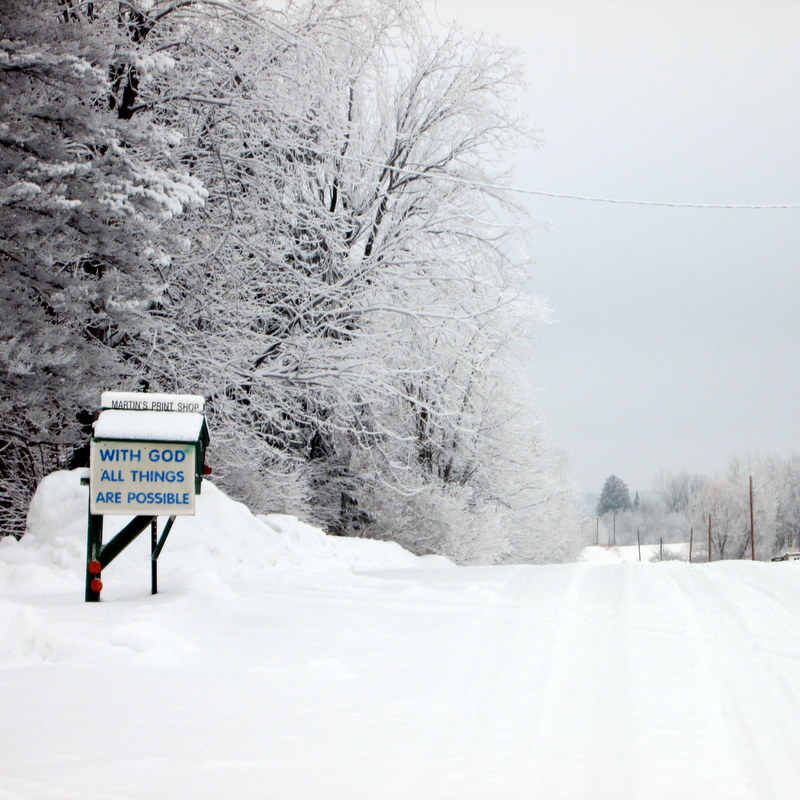
When my mom was young, she remembers walking home from school around a country block with drifts of snow pushed high on both sides of the road. I know the road she walked; I occasionally walked or biked the same road later, in my elementary days, on the way home from the same country school. I always walked it in the spring or autumn, never in the winter, but knowing Wisconsin winters as I do, I can imagine it. I know the crunch of snow under boots, the fresh cold on the inside of nostrils, the way you start out huddled, with a dense soft scarf pressed against your chin, and end with your cheeks flushed and blood pumping through your body, the scarf dangled loosely around your neck. I know the soggy feel of boots and gloves when you peel them off in the entrance, and the way your red feet and fingers itch as they thaw.
What I do not know are the towers of snow Mom remembers, packed and pushed away from the road, so high the boys would climb them and try to touch the telephone wires. When I first heard this, I could not imagine it–not until Mom told me that the telephone wires of forty-five years were not as high as the electric lines of today. Today’s telephone lines are not on poles at all, but buried underground. Still, the heaps of snow must have been higher back then, to come close to touching even a low telephone wire.
We in Rusk County, Wisconsin, if no longer accustomed to wire-high drifts, are well accustomed to snowy roads. We know gravel roads rutted and freeze-dried, and asphalt roads with lines of ice still present for days after a storm. As soon as one crosses the line into Taylor or Chippewa or Barron County, the roads are better. We comment on that to each other, along with other comments on the sodden unglory of snow. Hearing us, one would wonder why on God’s green earth we chose to live in Wisconsin, if we must always complain about the snow.
“Do you think it will…?”
“Stop! Un-uh. Don’t say the ‘s’ word.”
“I wish we’d get ten minutes of it over Christmas, and that’s it.”
“In Wisconsin, we have nine months of winter and three months of road construction.”
In spite of the unnumbered complaints of its prisoners and the inglorious soddeny of its late-spring existence, snow, in its first delicate falling, is magical, lying like feathers of faerie breath along dark branches.
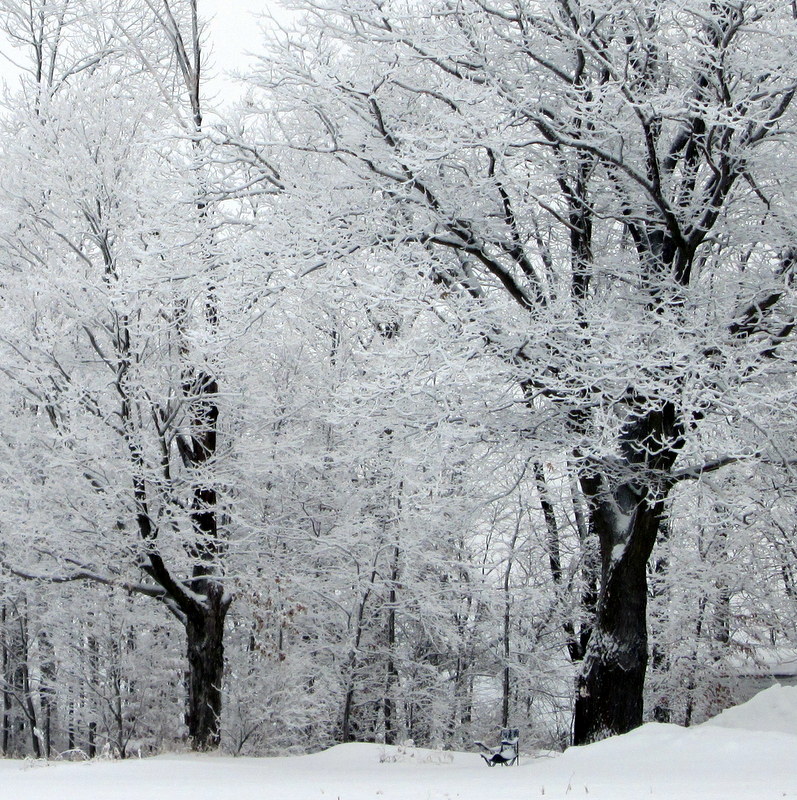
In Wisconsin we don’t appreciate snow as we should, perhaps. When I lived in Virginia, every sprinkling of snow was enough to postpone school, and a rumor of it lined cars up at gas stations and emptied grocery stores of milk and bread. Here in Wisconsin, we may see a slipped car in a ditch beside the freeway, but we slow down only long enough to get over the next hill, where we can conveniently forget it and resume normal speeds.
I never enjoyed snow in Wisconsin as I did in Virginian, where I taught a classroom of children who only saw it several days out of a year. If school was cancelled because of snow, they played all day and got together for sledding in the evening. If school was only postponed a few hours, they played all morning before school, and every recess rushed out to play some more. Snowball fights, snowmen, and snow forts: these children were in their glory, determined not to miss a centimeter of snow before it melted.
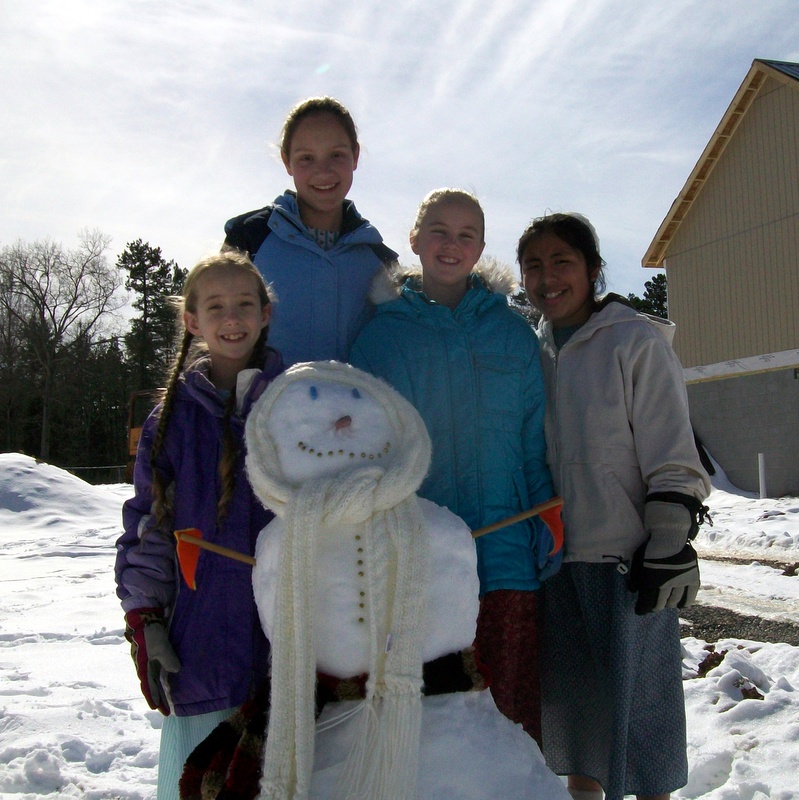
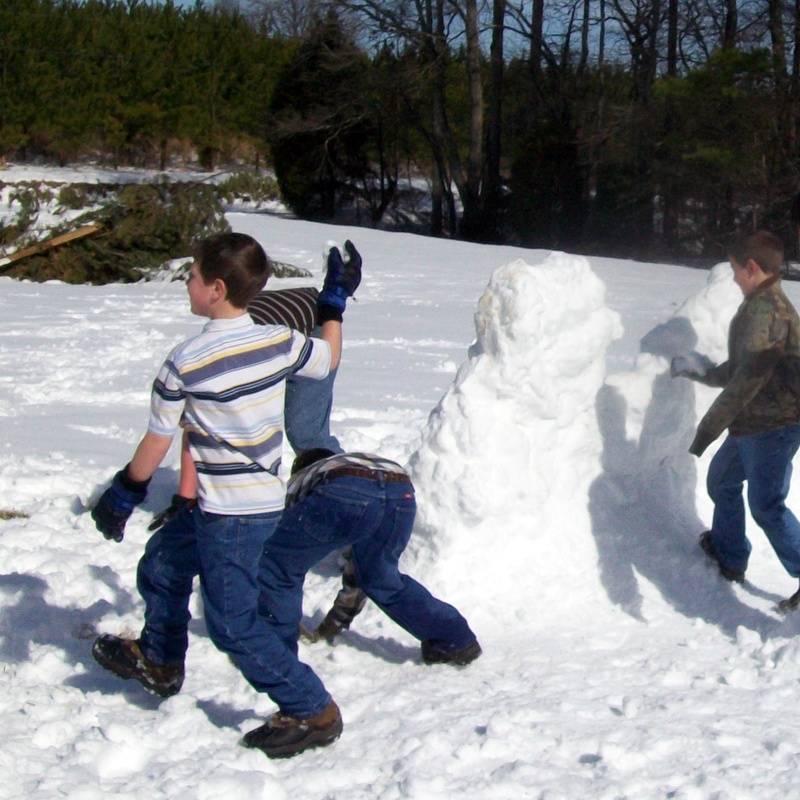
Mom tells me that when she was young, she wasn’t allowed to eat snow because it was dirty, and her mom did not like the idea of her children eating dirt. Snowflakes form around grains of dust in the air, and as children, my siblings and I were proudly aware of this. We would say to each other, “Did you know you’re really eating dirt?” as we sucked down fingerfuls of snow, conscious of the dirty grains sliding into our tummies along with melted ice crystals.
Dad had no compunctions over his children eating dirt, and every so often, after a fresh snow, he’d make us snow cream. He’d take the metal bowl from the Kitchen Aid and stoop outside the back door, moving quickly in the cold without a coat, heap the bowl with freshness as ephemeral as faerie hair, and tramp back into the kitchen, kicking snow off against the doorstep. Two minutes of the mixer whirring, and he’d yell, “Come eat the snow cream before it melts!”
We all agreed that snow cream was delicious, like ice cream and even better. Here is the recipe Dad used:
Snow Cream
2 cups milk
2 eggs
1 1/4 cups sugar
3/8 tsp. salt
1 Tbsp. vanilla
approx. 4 quarts of fresh, clean snow
Mix quickly. Eat at once.
If you haven’t had snow cream before, try it. It’s fun, and your children will enjoy the experience.
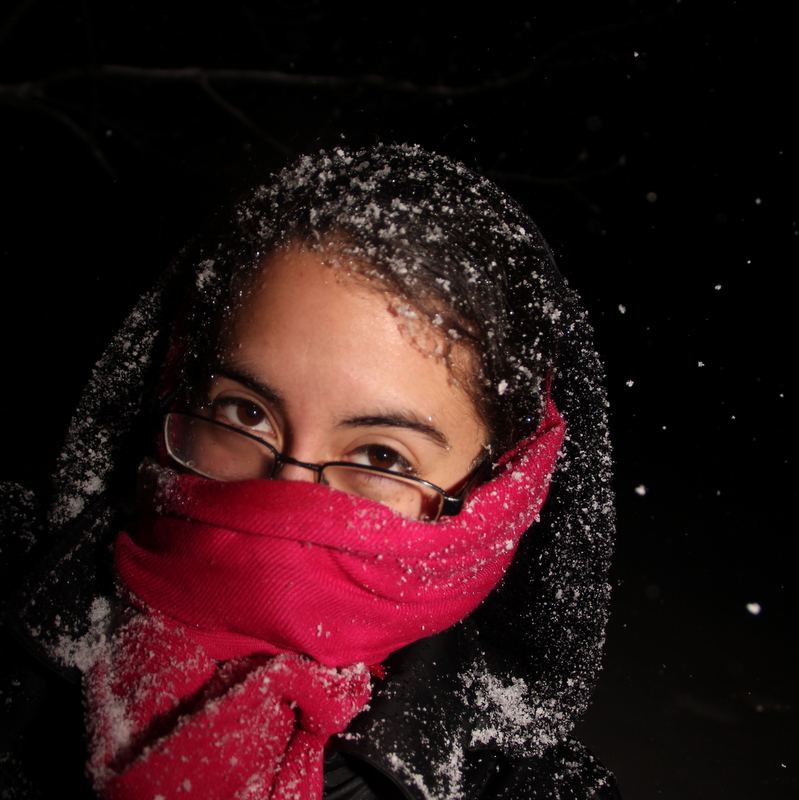
Last winter, I took this picture of snow on our lilac bushes. I love the pattern of crisscrossed branches. With the repetition of brown, black, and white, you barely notice the chickadee perched on a twig.
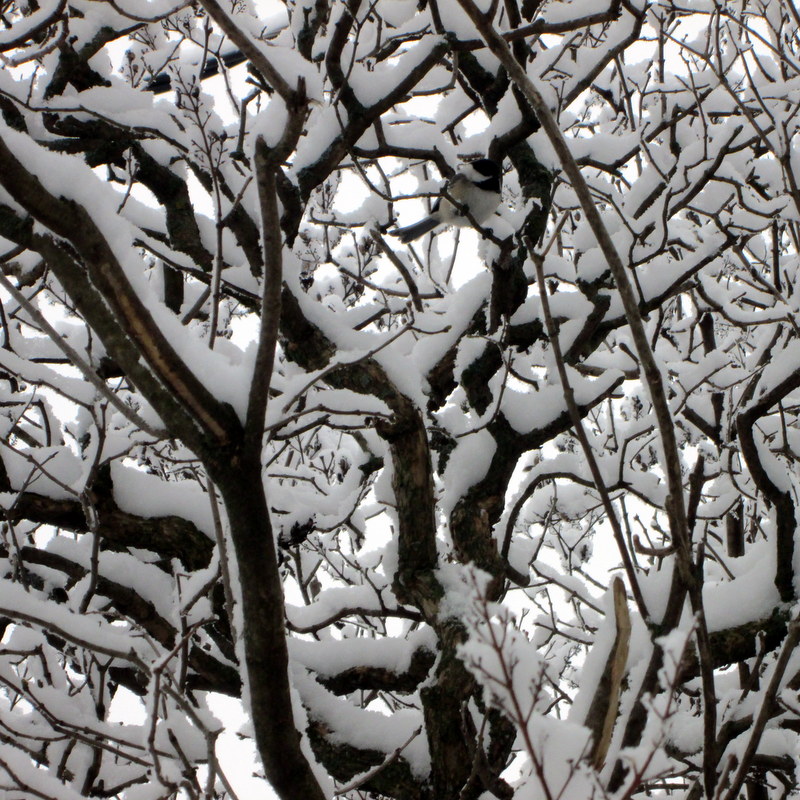
It reminds me of the pattern of life–crisscrossed with complexity, but always a repetition what has happened before.
Snowflakes also form in patterns–ice crystals clinging to a grain of dust, crystal piling upon crystal until the snowflake is heavy enough to fall to the earth, every flake unique in design, but always six-sided. People are like the snowflakes: formed of repeated thoughts and actions, every formation centered around a single grain of perceived truth.
What you believe is what you are. Nothing more, and you are made, slipping from the sky of your birth to the cold ground below.
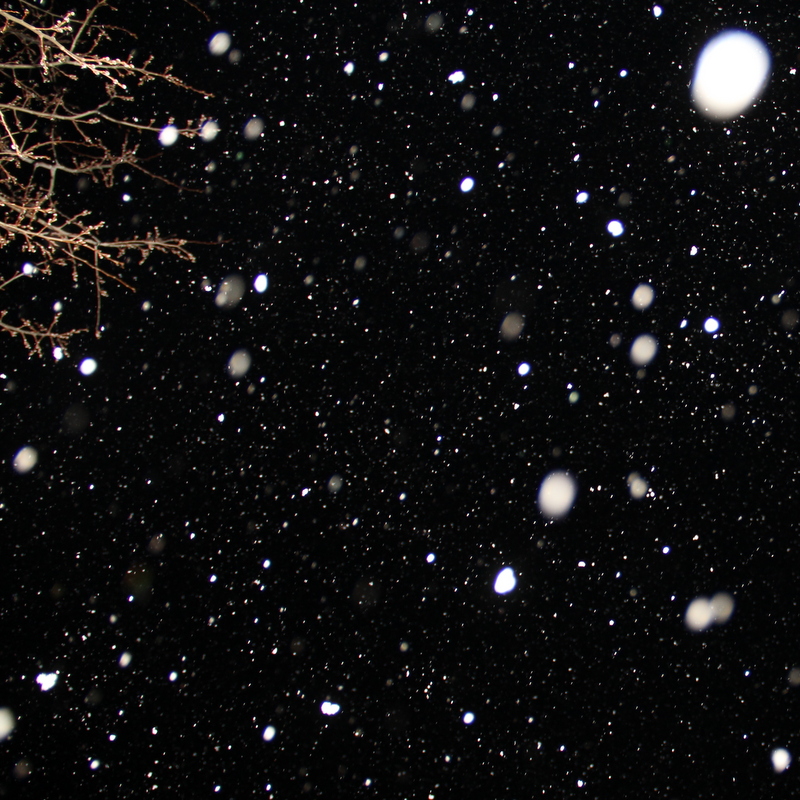
Ephemeral and patterned, dirty and edible, white on dark, this is the reality of life; this is the formation of snow.
I heard it was 9 months snow and 3 months of poor sledding. :-) The other day someone was saying they had 70 degree weather. I told them, that’s ok, I still don’t want to leave WI. Why do I love WI? Let me count the reasons.
Good thing the rest of them don’t know what they’re missing, eh? :)
Thanks for pointing out the chickadee! Reading this gives me a warm feeling about the cold, beautiful snow.
I enjoy your writing Lucy. I enjoyed snow when I lived in Wisconsin, but I’ve disliked it ever since. Maybe that’s because I was younger than:-)
You’re blog makes me smile. Might not be your intent… don’t know – but I love seeing headcovering women online making a sweet statement for Jesus without compromise. Blessings to you!
Joyce, I’m very happy if my blog makes you smile. And I hope very much I can always make a sweet, uncompromising statement for Jesus. Blessings to you also!
Didn’t she walk in 3 feet of snow, up hill, both ways! lol